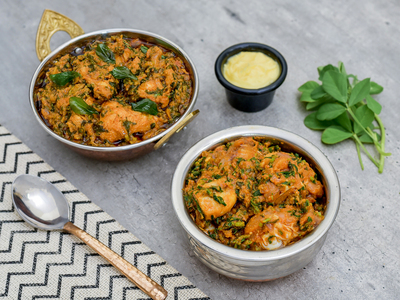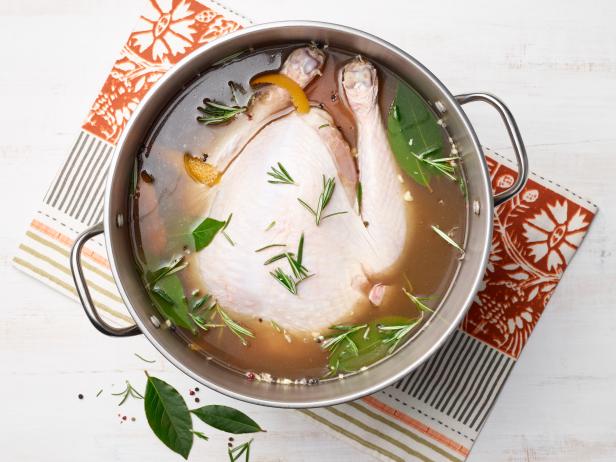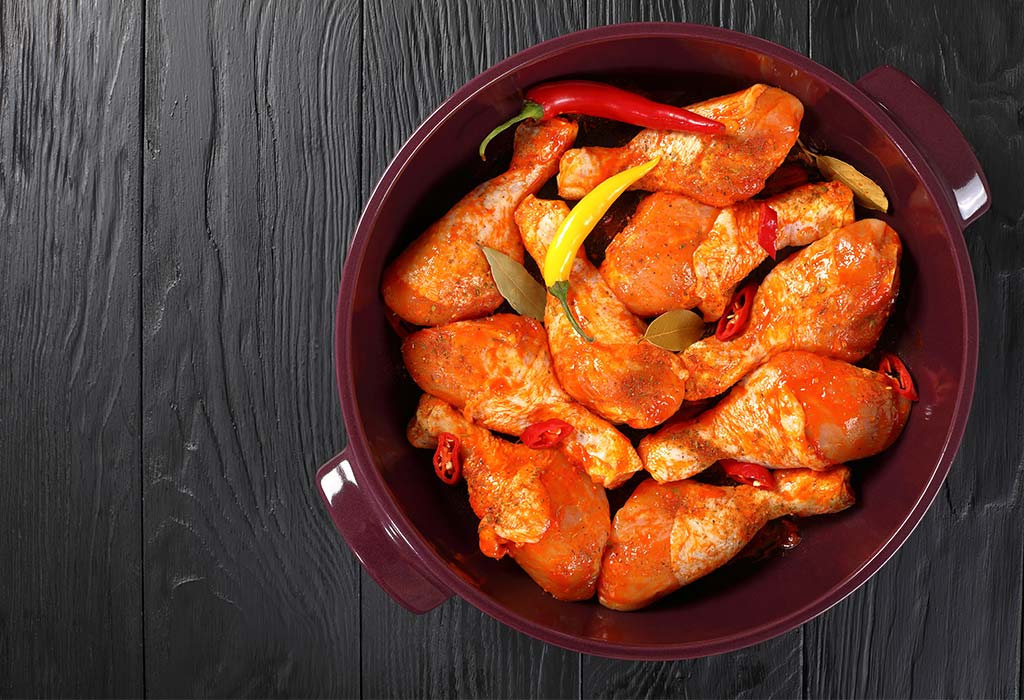
Cooking meat is a tricky business and demands perfection. Your favourite biryani with wonderfully spiced basmati wouldn’t be appealing without the meat being tender.
Are you craving chicken curries? Let us brine for you to dine. Try sensational chicken curries with 1tsp ONE POT CURRIES.
Nobody would want to eat boring chicken that is dry, tough and not flavorful. An overcooked chicken breast is tough and unpleasant to eat. At the other end of the spectrum, undercooked or raw meat could cause food poisoning. Foodborne pathogens such as salmonella can cause diarrhoea, nausea, fever or abdominal cramps.
Unlike vegetables, meat has to be cooked at a moderate temperature. While vegetables are cooked at temperatures near the boiling point of water, the accepted temperature for cooking meat, especially chicken, is between 55 to 65 degrees.
There are a couple of effective precooking methods that you can employ for chicken. They are:
Brining
Marinating
Brining:

Brining is the process of letting the meat sit in a salt solution. The science behind having the chicken float in a salt solution is that through osmosis, the liquid will travel into the meat to balance the salt levels. The salt prevents the loss of water and causes the muscle fibres to unravel and swell. All the retained moisture will not be lost in the cooking process and thus will help in producing tender and juicier meat.
The higher the salt concentration of the brine solution the faster is the process of breaking down proteins in the meat. As the brine enters the meat, the salt slowly loosens the tissues that hold the protein in tight coils. This breakdown provides the cooked meat with a more tender texture and takes away the chewiness
What are the different kinds of brining solutions:
Simple Salt solution: A quarter cup of salt for a litre of water is the general ratio for a brine solution. The brining time is roughly an hour for every 500 grams of meat.
Brown Sugar: Brown sugar or molasses is added to the salt solution to induce a sweet flavour to the meat. It can also promote the browning of the meat.
Brine without water: Apple juice or chicken broth can be used to replace some or all of the water. Chicken can be brined in buttermilk or pickle juice as well.
The brine for flavour: Soy Sauce, garlic & onions, fresh herbs or citrus peels is also a fantastic way to amp up the flavour of your brine. The brine needs to be heated just a bit to infuse ingredients and cooled before adding the meat.
The brine for the adventurous: A tablespoon of strong, neutral alcohols like vodka or 1/4 cup of flavorful alcohols like rum or gin can provide sensational flavours to the brine.
Dry Brining: This is essentially rubbing the meat down with salt and letting it rest in the refrigerator for 24 to 72 hours before roasting it. The salt changes the protein structure in the meat, which leads to the release of moisture.
In case you were to make the mistake of over-brining, the meat can be soaked in cold water to draw out the excess salt.
How does marinating help?

Marinades are used to add flavour to meat and to tenderize tougher cuts of meat to a certain extent. A good marinade requires an acid ingredient to tenderize the meat and herbs and spices to add flavour and zest.
The preferred acid ingredients are lemon, lime juice, wine, vinegar, or yoghurt.
The go-to spices for marinades are garlic, red pepper flakes, green onions, fresh herbs, rosemary, thyme, onion and ginger.
A yoghurt and lemon-based marinade is recommended for delicious grilled chicken kebabs.
Soaking a piece of meat in a marinade will only penetrate so far into the surface of the meat, millimetres at best. It is helpful in adding flavour and for improving texture.
While cooking chicken specifically, two hours of marinating is plenty of time for the meat to soak up the flavour.
For everyone’s favourite Butter chicken, the chicken is marinated with lemon juice, 1 tablespoon chilli powder and salt.
A marinade includes sugar or salt it will tenderise the chicken a little, but if there is an acid such as lemon juice or vinegar, buttermilk or yoghurt, then the marinade will transform the texture of the outside of the chicken over time.
The longer you leave an acidic marinade to work on the chicken, the worse the surface texture will get, becoming more stringy and dry.
High heat will caramelize sugars, so barbecuing, grilling, pan-frying and roasting will transform a marinade into a delicious crust.
Marinating meats before grilling them may reduce the amount of heterocyclic amines (HCAs) that can form on meat exposed to high cooking temperatures.
Thus, Brining and marinating are important aspects when cooking meat. If you do feel daunted by the task of cooking some chicken or are simply too hard-pressed for time, you could always try 1tsp chicken meal dishes for easy cooking.
We prep. You cook!
